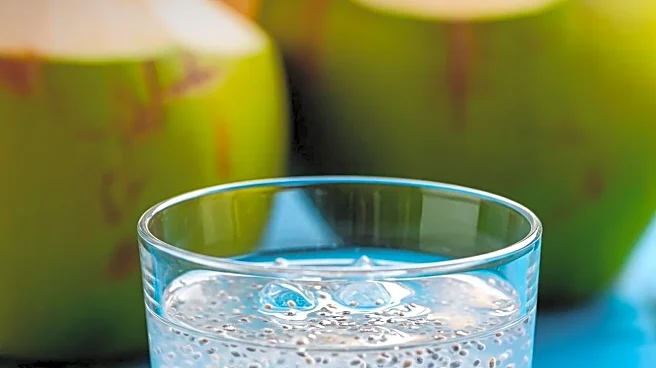What is the story about?
What's Happening?
A recent study presented at UEG Week 2025 has revealed that both sugar-sweetened beverages (SSBs) and low- or non-sugar-sweetened beverages (LNSSBs) are associated with a higher risk of developing metabolic dysfunction-associated steatotic liver disease (MASLD). The research analyzed data from 123,788 UK Biobank participants who had no pre-existing liver disease. Participants reported their beverage intake through multiple 24-hour dietary questionnaires, allowing researchers to investigate the relationship between beverage consumption and the likelihood of developing MASLD, liver fat buildup, and liver-related deaths. The study found that individuals consuming more than 250 grams of either beverage per day faced increased risks of developing MASLD, with LNSSBs linked to a 60% higher risk and SSBs to a 50% higher risk. Over a median follow-up of 10.3 years, 1,178 participants were diagnosed with MASLD, and 108 died from liver-related causes.
Why It's Important?
The findings of this study are significant as they challenge the common perception that 'diet' drinks are a healthier alternative to sugary beverages. Both types of drinks are widely consumed, and their effects on liver health have not been well understood until now. The study highlights the need to reconsider the role of these beverages in diet and liver health, especially as MASLD emerges as a global health concern. The condition, previously known as non-alcoholic fatty liver disease (NAFLD), is now recognized as the most widespread chronic liver disease, affecting more than 30% of the global population. The study suggests that replacing these beverages with water can significantly reduce the risk of MASLD, emphasizing the importance of water as a safer choice for maintaining liver health.
What's Next?
The researchers plan to explore causal mechanisms more deeply through long-term, randomized, and genetic trials. These studies will focus on how sugar and its substitutes interact with the gut microbiome and influence liver disease. The findings support limiting both SSBs and LNSSBs as part of a comprehensive prevention strategy targeting not only liver disease but also cardio-renal-metabolic health. The study advocates for water as the best choice to prevent fat accumulation in the liver and maintain overall health.
Beyond the Headlines
The study raises ethical and public health considerations regarding the marketing and consumption of 'diet' drinks. As MASLD becomes a major public health issue, there may be increased pressure on beverage companies to reformulate their products or provide clearer health warnings. Additionally, the findings could influence public health policies aimed at reducing the consumption of these beverages and promoting healthier alternatives.















